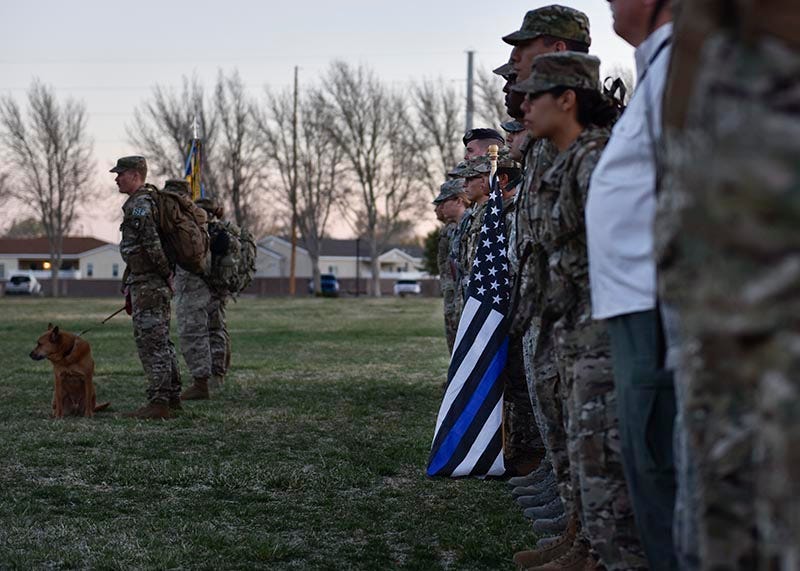
A captain in the Kansas National Guard has resigned over concerns that suicides and at-risk soldiers in her brigade aren't getting enough attention.
Capt. Tara Fields, a behavioral health officer within the Kansas National Guard brigade tells the Topeka Capital-Journal that she was met with obstacles when raising concerns about how to better support soldiers who may need help. Field's brigade has suffered nine suicides in the past five years, three of them in the past 18 months.
In 2018, the Defense Department’s Suicide Event Report (DoDSER) showed the National Guard experienced a higher suicide-mortality rate than expected when compared with the general U.S. population. The report found the mortality rate for Air and Army National Guard combined was 37.3 deaths per 100,000 Guard members in 2016.
"This is not how we treat our soldiers," Fields told the Topeka Capital-Journal. "I'm tired of watching it happen."
The breaking point for Fields was when she was checking in on an at-risk soldier whom she could not contact. Field says she panicked and was so anxious herself, her husband called authorities for fear of her own health. She was hospitalized with her own suicidal ideation after she had wrapped a cord around her neck.
The incident led to Fields being labeled “high-risk,” but it compelled her to work further to find out how to better reach soldiers who could be at risk for suicide.
While most service members in the Guard component are often limited to seeing their fellow soldiers, airmen, and senior leaders one weekend a month, the National Guard’s various suicide prevention programs include a variant of resources like toll-free crisis hotlines and Military One Source to fill in those gaps.
Even with the current programming, Fields didn’t think suicide was a priority for the Guard’s senior leadership. Her resignation is expected to be finalized by the end of April.
"Our conversations have been with the senior staff..have been more about looking at what we're doing. are there any valid points related to if we're doing enough," said Kansas state National Guard chaplain, Colonel Terry Williams.
While those inside the ranks are trying to make changes in regards to mental health, lawmakers also want to take note of the needs of the Guard and Reserve components.
This year, Rep. Phil Roe (R-Tenn.) and Rep. Mike Levin (D-Calif.) introduced a bill that would expand mental health resources so that service members can receive counseling from VA Vet Centers after serving in emergencies, like a major disaster, drug interdiction operation, or national emergency.
"Every time we have that, it is a very tragic situation for the Kansas National Guard,” Maj. Gen. Lee Tafanelli said. “It's a very tragic situation for each of us individually.”
Related: Bill would expand VA mental health care to National Guard, Reservists, Coast Guard
Related: A veteran mentioned suicide online. Five months later, he was found dead.
